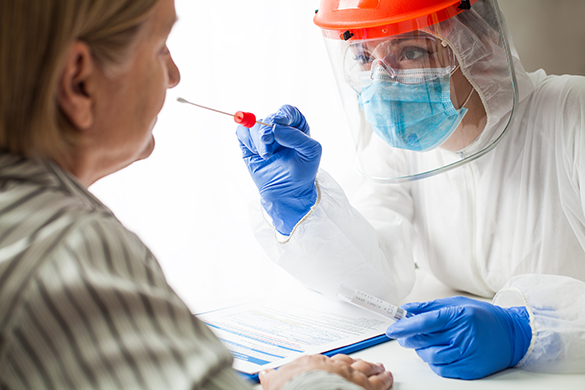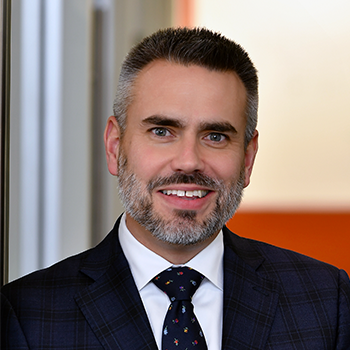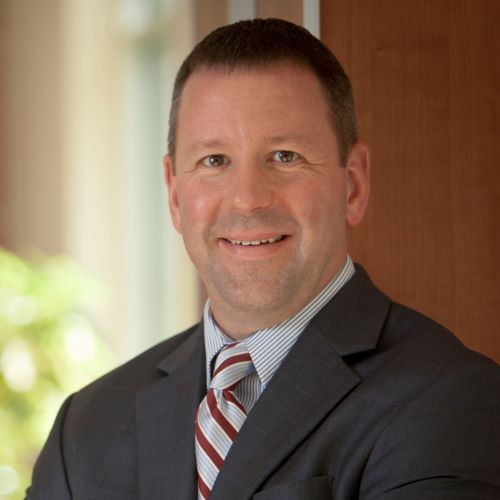 It has been two years since COVID-19 emerged, taking the lives of hundreds of thousands of Americans and straining hospitals across the country to the limit. The highly contagious Omicron variant has fueled a significant new wave of COVID-19 cases in Indiana, causing a new record level of hospitalizations.
It has been two years since COVID-19 emerged, taking the lives of hundreds of thousands of Americans and straining hospitals across the country to the limit. The highly contagious Omicron variant has fueled a significant new wave of COVID-19 cases in Indiana, causing a new record level of hospitalizations.The Indiana Department of Health reported nearly 16,000 new cases of the coronavirus as of mid-January, with the state's death total since the pandemic began rising to nearly 20,000 Serious staffing shortages persist throughout the national health care system, and Indiana hospitals scrambled to manage the needs of all patients. National Guard and U.S. Navy personnel were deployed to hospitals to help ease the strain as many frontline workers battled to stay healthy themselves.
In a recent press conference, Gov. Holcomb along with Indiana State Health Commissioner Dr. Kris Box and Indiana Department of Health Chief Medical Officer Dr. Lindsey Weaver announced an extension of the public health emergency due to this recent surge. Dr. Box announced that more than 3.5 million Hoosiers have been fully vaccinated—with boosters in the arm of more than 1.3 million individuals. However, although these numbers have improved, state officials continued to push for more Hoosiers to get vaccinated.
Dr. Box sounded the alarm as the COVID-19 hospital census rose in January to the highest it has been in a year. The number of individuals hospitalized with COVID-19 had increased more than 700% since June 2021.
On Jan. 11, Indiana saw new record highs for COVID-19 hospitalizations and Indiana Hospital Association President Brian Tabor asked Hoosiers for help.

“Indiana hospitals are overwhelmed with the highest number of patients on record and have reached a state of crisis with dwindling capacity left to care for patients," said Tabor. “Our emergency departments are seeing 8,500-10,000 visits per day, and at any given point there are several hundred patients boarding in emergency departments around the state awaiting open beds. Hospitals are open 24 hours a day, 7 days a week, and treat every patient who walks through our doors. However, we need your help – we ask that you do not go to the emergency room simply to receive a COVID-19 test. Please seek testing at primary care sites including physician offices and urgent care centers when possible, and consider using telehealth for non-emergency treatment. With current case rates and positivity, it is expected that hospital patient volumes will continue to climb for the next couple of weeks and Indiana will pass the state's all-time high of COVID-19 hospitalizations this week. We need your help now more than ever to manage through this."
Carl Risk, CEO of Elkhart General Hospital, shared his perspective from the front lines. Hospitals across the state found themselves forced to occasionally turn to diversion as emergency rooms were flooded. Elkhart General's critical care unit (ICU) was also full for several weeks as caregivers tended to each patient that comes through their door.
“Just like many other hospitals, we have patient care beds in our Emergency Department hallways due to our inpatient beds being at or above capacity," Risk said. “Each day our clinical team reviews surgeries needing an inpatient bed the next day, potential beds available, and potential discharges to determine if we have the capacity to perform the surgery."

Risk said Elkhart General took extra measures to ensure caregivers are properly dealing with the stress and exhaustion that comes along with treating patients during this time. The Oasis Room with rotating massages provided a relaxing environment for those who need it. Risk says the only issue is, caregivers are having a hard time stepping away from patients due to the high volume. He says across the state, all hospital personnel are truly doing the best they can.
“It is so important to support our hospital staff," Risk said. “We are all experiencing a very challenging environment. Many of our caregivers have taken an oath or pledge to do their very best to care for our patients, but when you have so many patients to treat, many are feeling as if they aren't doing enough, and that just simply isn't true. My team works hard every single day, and I know we will all get through this together."
Recently, Beacon Health System and Ivy Tech Community College announced a collaboration on an innovative program designed to attract, educate, and train nurses who will remain in the community to care for patients locally. The collaboration will establish the new Beacon Health System School of Nursing at Ivy Tech. Starting in the fall of 2022, nursing students will have the cost of their Ivy Tech education, including books, covered by Beacon Health. Beacon Health will provide these students with a living stipend and future employment as a Beacon Health nurse.
“Beacon is very excited about this new partnership with Ivy Tech and looks forward to it helping us address the nursing shortage in our region."
